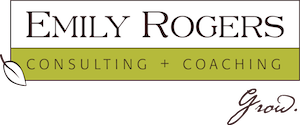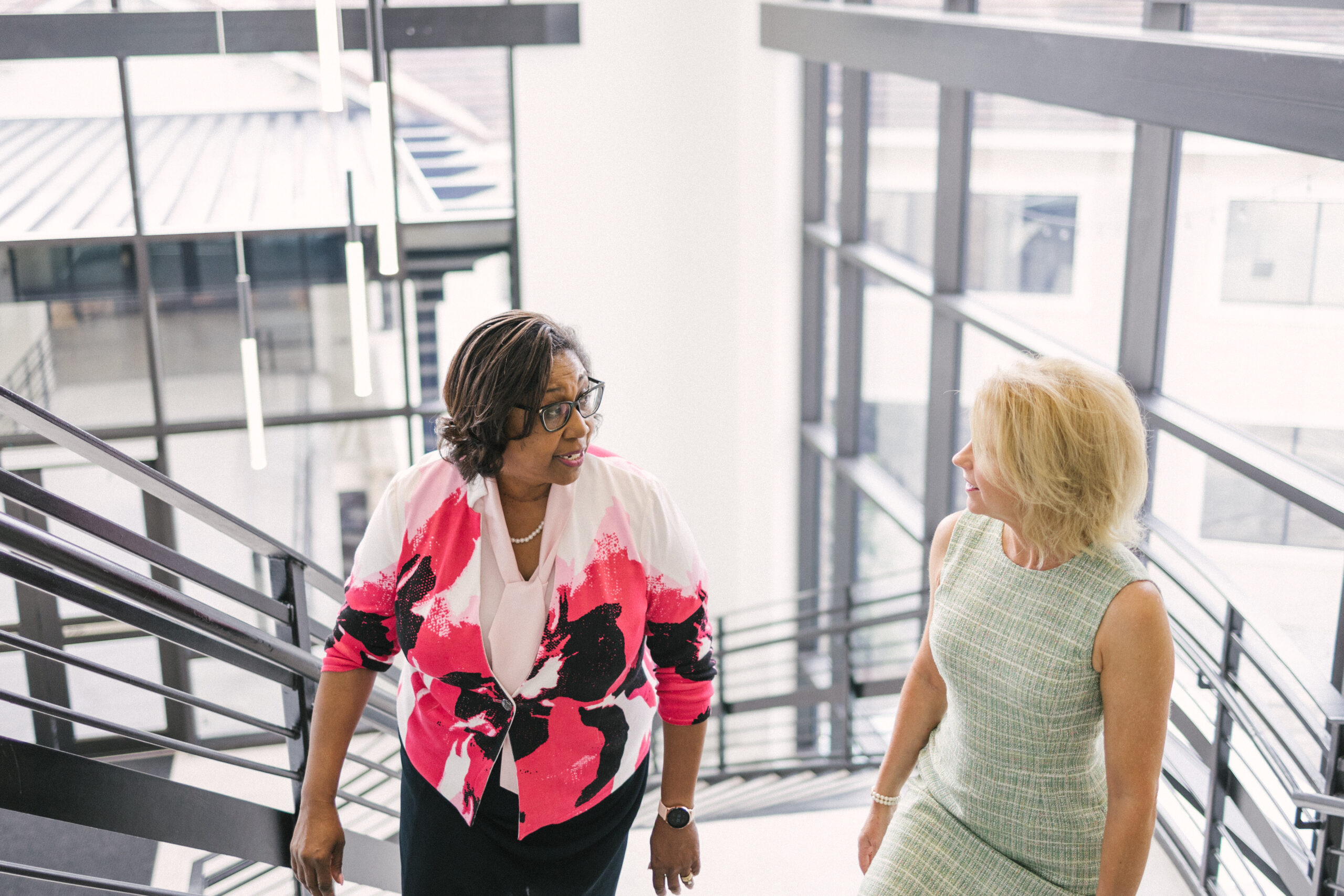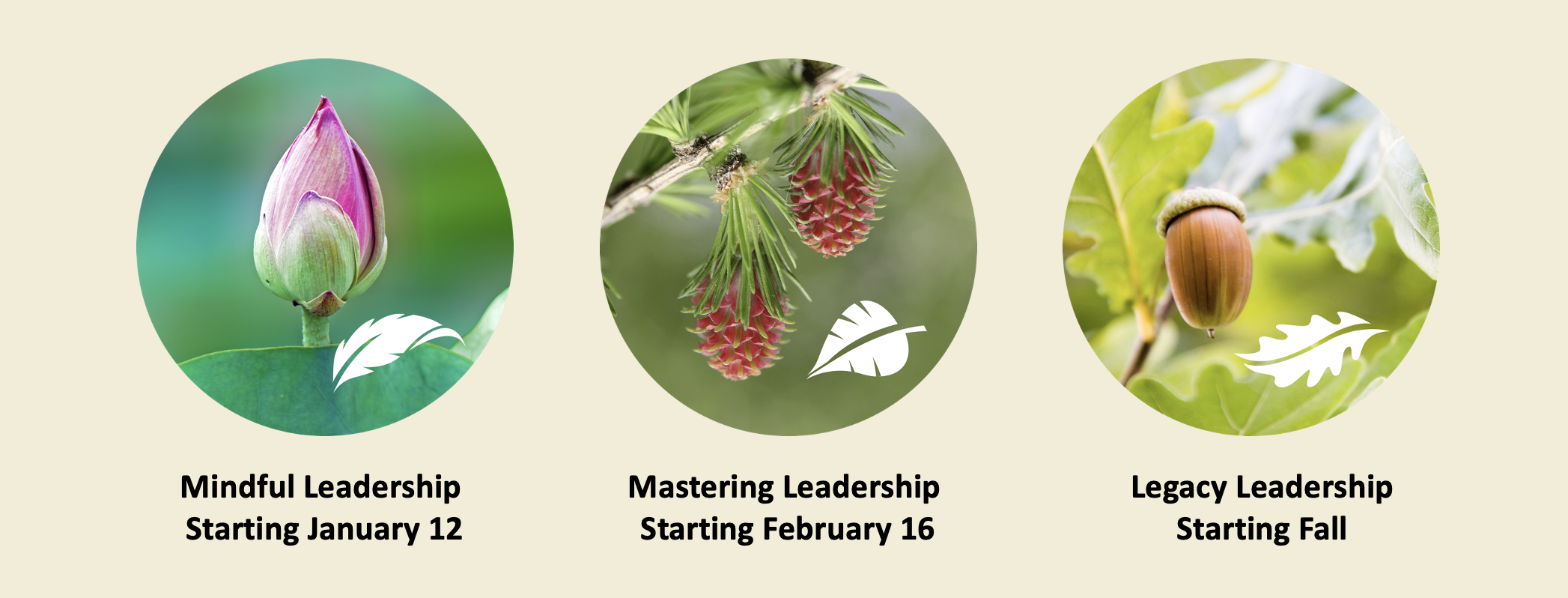Sylvia Blackmon-Roberts serves as the Associate Vice President of Community Relations and Chief Diversity Officer at Southeastern University. As part of the Executive Leadership Team, her roles include helping the University achieve its mission, ensuring that the values of diversity, equity, and inclusion are upheld in the university’s policies and practices while cultivating and building strategic relationships throughout the local, regional, and national communities Southeastern serves.
An entrepreneur at heart, Sylvia became nationally known as the President and CEO of Blackmon Roberts Group, Inc., a public planning and management consulting firm she founded in 1992. Her analytical skills and business savvy grew her firm from a one-woman consultant to a $58M enterprise. I had the pleasure of meeting with Sylvia to talk about how her life experiences have inspired her purpose as a leader and what women can do to not only arrive at the C-suite but thrive there.
What are the most notable life and work experiences that have shaped and influenced you as a leader?
When you’re blessed to keep aging, the seasons change in your life and things happen that collectively bring you to where you are. Trying to identify one notable instance that shaped me as a leader is very difficult. Rather than one experience, it is the totality of my lived experience as a Black woman that has truly shaped who I’ve become as a leader. The inequities that exist for women and people of color in the business world – stereotypes, lack of support, low or uninformed expectations– are all experiences that have contributed to who I am as a leader.
In the earliest years of my career, I had an experience with a boss who was a very poor leader. This person didn’t know how to communicate, motivate, or encourage. As a young person trying to learn my role, this experience was very traumatic. However, it taught me all the things I didn’t want to do when it was my turn to lead. I did not want anyone who I was honored to lead to ever feel the way I did during that experience.
What sense of purpose guides you in your life and work?
I have two purposes. One is serving and helping to elevate people. I stand on the shoulders of many, and I want to help others rise so that they can be better, do more and achieve more. I love having conversations with women, especially young ladies starting their journey. My hope is that if I share seeds of knowledge and experiences that I’ve gone through, they might make better-informed decisions when they are in a similar situation.
Elevating people also applies to my passion for helping women get to the C-suite. The more time I spent at the highest levels in organizations, the more I saw that women were not adequately represented. I decided that my purpose was not only to get more women into the C-suite, but to make sure that they were equipped to thrive in the C-suite.
My second purpose is addressing injustices. Whether it’s social injustice, economic injustice, or gender issues. Since I’ve been blessed to get to the table, part of my role is to bring a voice for who or what is missing from the table. There are many times where because I am a woman or a Black person, I become the standard for the next woman or Black person to serve in that role. I want to make sure that if I’m given the privilege and honor to be present, that I stand up for those not yet included and that I set a high standard of expectation for the women that follow behind me.
What is the biggest mistake you see women leaders make and how can they avoid it or recover from it?
I think that the biggest mistake I see women leaders make is one that I am guilty of myself – we try to be superwoman. As women, we come to the table balancing a lot of buckets. We are wives, mothers, daughters, and then we’re in the corporate world which is a completely different dynamic. All of these buckets must be balanced and require energy and time to fill. But the reality is that the energy you’re drawing from and the time you have is all limited. Trying to do it all at 100%, all the time takes a toll on you.
My advice to women is to find yourself a tribe. Find yourself not only a mentor, but an advocate. Your mentor can provide advice and help you with work-life balance, and an advocate is someone who will stand up for you when you must step back or be your voice when you are not present. The truth is that if you are a hard worker and you’re results oriented, you will be called upon to do more. An advocate will know your boundaries and support your need to focus on other areas in your life. When my children were small, I wanted to go to Little League games. I wanted to give my time and attention to that area of my life for that season of my life. It was tough, because I worried that when I started saying no, there would be times when my name might not come up for the next opportunity. But my mentor and advocate told me, learn the word no and let it stand as a complete sentence. I embraced it, and I started saying no. By gaining more control of my time, I provided more quality to the people that mattered the most to me.
Is there is one person who inspired you to be a better leader or one person who challenged you to think most differently about leadership?
My earliest influence came from my mother. She was such a strong woman. She was a civil rights leader, standing in places that took unimaginable strength, in a segregated, deep south Mississippi. In terms of true leadership skills, the former international president for my sorority Alpha Kappa Alpha, whom I served with as one of her chairmen in the organization, taught me that effective leaders don’t lead to be important, they lead to be impactful.
And she kept saying that. No matter what decision, her question was always “What’s the impact?”. That resonated with me. When I make decisions, I don’t measure the importance of the decision. I measure the impact of the outcome.
Ten years from now, what do you most want to be remembered for?
I hope that I’ll be remembered for being a lifelong learner. I want to be missed and I want to be missed for the right reasons. I want to be remembered for the impact I made on people and in my community. It’s just that simple. I am grateful to have lived in this community, for all the blessings that I have been given, and I hope that I will leave a legacy of making a difference.
This interview has been edited and condensed for clarity


